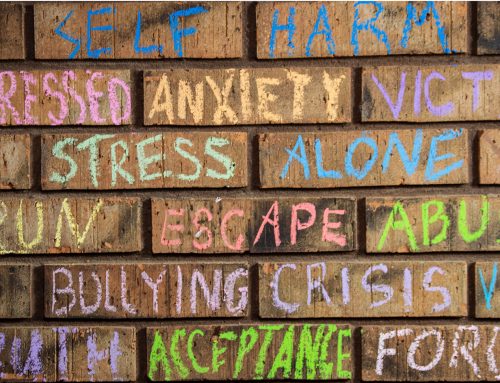Suicide is non-discriminatory; it affects everybody regardless of gender, race, class, or age. According to the World Health Organization, 1 million people attempt suicide per year, yet it’s still not commonly talked about.
A person who is contemplating suicide is in so much pain that they do not see any other feasible options. Suicide is a permanent solution to temporary problems; the effect reaching far beyond the person who takes their life.
Suicide can be a symptom of depression; however depression is a treatable mental health illness that affects many people. Many people may struggle with feelings of sadness and hopelessness but never act upon suicide. Suicidal thinking is complex, so it is important to understand the warning signs to understand if the person needs immediate help.
A person who is struggling with suicidal thoughts may not know how to ask for help, they just want to stop hurting. You might feel uncomfortable bringing up the subject with someone you suspect may be suicidal, but talking openly about it, responding quickly, and offering support, can save their live.
Recognizing these signs and using the resources below may help you prevent someone from completing suicide:
Warning Signs:
- Isolating behaviors, withdrawing from family and friends
- Substance abuse issues
- Decline in work or school performance
- Being bullied
- Recent death of a loved one
- Increased mood swings
- Decrease in activities
- Giving away possessions
- Change in sleep or appetite
- Chronic mental illness
- Feelings of hopelessness
- Acting impulsively
- Seeking out lethal means
- Having a plan
- Having intent
Suicide Prevention Resources
National Resources:
- Suicide Prevention Resource Center– http://www.sprc.org/
- National Institute of Mental Health– http://www.nimh.nih.gov/health/topics/suicide-prevention/index.shtml
- National Suicide Prevention Lifeline– http://www.suicidepreventionlifeline.org/
- American Association for Suicidology– http://www.suicidology.org/ncpys
- American Foundation of Suicide Prevention– https://afsp.org/
- The Trevor Project– http://www.thetrevorproject.org/
- Trans Life line– http://www.translifeline.org/
- 211– http://www.211.org/
Denver Metro Area Resources:
- http://coloradocrisisservices.org/
- http://www.metrocrisisservices.org/
- http://www.suicidepreventioncolorado.org/
- http://www.5280.com/prevention
- https://mhcd.org/child-family-suicide-prevention/
Hotlines:
- http://www.suicide.org/suicide-hotlines.html
- 1.800.273.TALK (8255)
- 1.800.SUI.CIDE (784.2433)
Text Lines:
- Text “GO” to 741741
To your wellbeing,
-Alea Makley, MA
Case Manager
The MINES Team










Leave A Comment